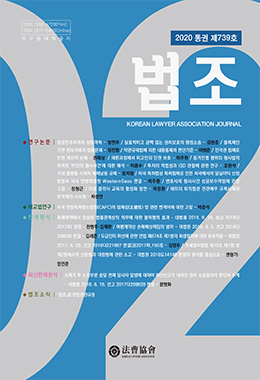지방자치단체의 자치권 침해에 대한 분쟁이 증가하고 있으나, 이에 대한 공법상 권리구제제도는 미흡하다. 지방자치단체의 주관적 지위가 점차 강조되고 있다. 그러나 지방자치단체의 기본권주체성을 인정해야 하는지에 대해서는 논란이 있다. 국가와 지방자치단체 또는 그 기관 사이에는 그 권한과 의무를 둘러싸고 다양한 형식의 분쟁이 발생할 수 있다. 지방자치단체의 권한(자치권) 침해에 대한 권리구제수단으로 권한쟁의심판과 기관소송이 고려되고 있다. 최근에는 매립지의 관할 분쟁이 증가하고 있으나, 헌법재판소와 대법원 사이에 관할 충돌의 가능성이 남아 있다. 또한 기관소송은 법률의 규정이 있는 경우에 한하여 제한적으로 인정되고 있으며, 법규범에 의한 지방자치단체의 자치권 침해는 권한쟁의심판의 대상이 될 수 없다. 국가기관의 감독처분에 의해 지방자치단체의 자치권이 침해된 경우에 대법원에 제소할 수 있다. 그 소송의 법적 성질에 다툼이 있지만, 그 본질은 항고소송의 성격을 가진다. 국가기관의 감독처분에 대해서는 지방자치단체 또는 그 기관이 항고소송을 제기할 수 있는 가능성을 열어둘 필요가 있다. 지방자치단체의 기관에 대해 원고적격을 인정하기 위해서는 이에 대해 당사자능력을 인정하는 규정을 행정소송법에 두어야 한다. 지방자치단체의 주관적 지위를 인정하더라도 기본권의 주체와는 구별되어야 하며, 법규범에 의한 지방자치단체의 자치권 침해에 대한 권리구제수단으로 일반적인 헌법소원 이외에 지방자치단체 헌법소원 제도를 마련하여야 한다.
Disputes over infringement of local governments’ autonomous right are increasing, but the relief system of public law is still insufficient in Korea. While the subjective status of local governments is gradually being emphasized, there is also controversy over whether their subject of the local government’ fundamental right should be recognized. Various types of disputes may arise between state and local governments and agencies about the duties and authorities of each institution. An Adjudication on Competence Dispute of the Constitutional Court and an Agency Litigation of the Supreme Court are being considered as a mean of remedies of public law against the infringement of the local governments’ autonomous right. Recently the jurisdictional disputes over Landfill is increasing, but there remains a possibility of a jurisdictional conflict between the Constitutional Court and the Supreme Court of Korea. In addition, Agency Litigation is recognized only when there is a provision in the statute, and the infringement of local governments’ autonomous right by legal norms cannot be subject to the Adjudication on Competence Dispute. A suit may be filed with the Supreme Court if the autonomy of local governments is infringed by the statute or regulations of state agencies. There is a dispute over the legal nature of the case, but its essence lies in the nature of the appeal litigation. As for the oversight of state agencies, it is necessary to leave the possibility that local governments or their agencies can file appeals. In order to recognize the plaintiff’s qualification (standing) for the local government’s agencies, the Korean Administrative Litigation Act should provide a clear provision recognizing the competence of the parties to it. Even though the subjective status of local governments could be recognized, it should be distinguished from the subject of constitutional fundamental rights, and the Constitutional Complaints of Local Government as a mean of remedy for the infringement of local governments’ autonomous right by legal norms should be introduced.




